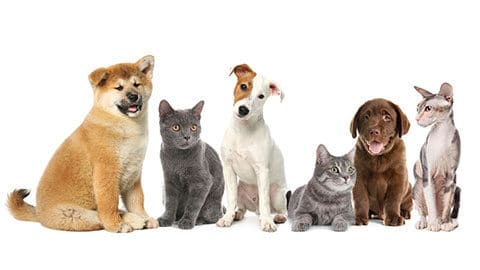
Is that the ‘Look of Love’ in Your Dog’s Eyes?
You know how some dog trainers caution to never look a dog directly in the eye --- that it can be threatening or intimidating or send a negative message along those lines? And might even incite a dog to go after you?
Now this may be true if you run into a crazed-killer-mutant-mad dog like Cujo in a dark alley some night (in which case tiptoe slowly backwards, averting your gaze!), but I’ve found that confident, well-socialized dogs love nothing more than to have you gaze adoringly into their big brown peepers. The Look of Love!
In my case (with dogs whose eyes are actually the yellow/green color of a cat, because they are Weimaraners --- whose eyes start out baby blue and then change around six months of age), Maisie and Wanda virtually insist that I look right at them when we are interacting. They sit and stare intently at me when I’m at the computer (for example right now Maisie’s eyes are boring a hole in my side, willing me to look at her and pat her!); then when I do stroke or scratch them, they always position themselves so they can look back right at me, as if to keep me engaged. And if I really lock eyes with them they just melt with happiness.
I’ve also noticed they are affected not just by my tone of voice, but by my facial expression --- they are definitely studying my eyes and mouth. I have been curious if my expression affects them and to test it I have purposefully given them a big giant grin. It seems to me they respond in kind, opening their mouths slightly and, in Wanda’s case, becoming so ecstatic that she also makes a series of joyful, cup-brimming-over cooing sounds.
Now it turns out that our dogs’ expressions can reflect ours. The New York Times recently reported in an article that British researchers studied the facial expressions of dogs --- in particular the muscle that raises the inner part of the eyebrows and makes their eyes look bigger. The study noted whether the person was paying attention to the dog or was turned away; at times the person was holding food and other times was empty-handed.
The study in the journal Scientific Reports showed that the dogs were more expressive when the person was paying attention to them, and that it didn’t seem to make a difference whether the person was holding food or not. The dogs reacted by sticking out their tongues and barking more when they did get attention, compared with when they were being ignored or given food.
“This simply shows that dogs produce more (but not different) facial movements when someone is looking at them,” Juliane Kaminski, the study’s lead researcher and a senior lecturer at the University of Portsmouth in England, was quoted in The New York Times article. There was also an opinion from Brian Hare, a professor and director of the Canine Cognition Center at Duke University (which was not involved in the study), who told The Times that these findings should be gratifying to any dog lover who worries that his dog only cares because he’s being fed.
I would add that having your dog’s full attention is actually a “treatable moment” --- something worthy of a fine little reward. Whether their attention is freely given in a spontaneous moment of trying to decipher your intentions or mood --- or when you get your dog’s full attention in response to coming when called --- or simply responding with a head tilt to hearing you speak her name --- these are all good occasions to pull out a super dandy treat and reward the dog’s focus on your face. All while smiling broadly at her and gazing in mutual adoration!
---Tracie Hotchner
(Have a comment? Share it on Facebook.)
photo credit: Rennett Stowe Chihuahua via photopin (license)

